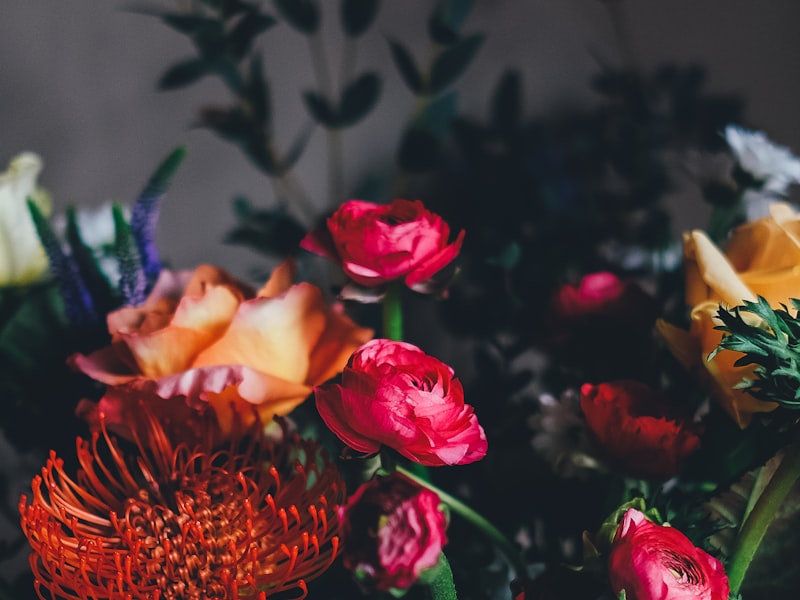How "Sustainable Practices for Flower Gardening: Reduce Waste and Save Money" can Save You Time, Stress, and Money.

Sustainable Practices for Flower Gardening: Lessen Waste and Save Cash
Flower horticulture is a popular hobby that gives beauty and leisure to lots of people. However, it can also produce a lot of waste and cost a whole lot of cash if not carried out sustainably. By adopting lasting techniques in your flower landscape, you may lessen misuse, spare amount of money, and aid protect the setting. Right here are some suggestions on how to do it.
1. Start along with well-balanced ground
A healthy and balanced soil is the foundation of any kind of effective blossom garden. As an alternative of utilizing synthetic fertilizers and chemicals that may harm the atmosphere and your wellness, utilize organic methods to enhance the top quality of your ground. Composting is an excellent means to generate nutrient-rich dirt that will assist healthy vegetation development without damaging chemicals.
2. Choose indigenous vegetations
Native vegetations are adjusted to the neighborhood climate and require much less water, fertilizer, and upkeep than non-native species. They also offer food items and shelter for nearby wildlife such as honey bees, butterflies, and birds. Opt for plants that are satisfied for your location's environment zone to make sure they grow in your garden.
3. Use compost
Mulch is a level of natural component such as vacation or lumber chips that covers the soil around vegetations to preserve humidity, reduce weeds, regulate temp, and add nutrients to the dirt as it decomposes. It lowers water use through up to 50%, which conserves amount of money on water costs while always keeping vegetation origins amazing during hot climate.
4. Accumulate rainwater
Rainwater is free of cost water that falls from the sky; why not accumulate it for use in your garden? Putting up a storm barrel or cistern will certainly make it possible for you to grab rain coming from your rooftop gutters during wet periods; this will certainly lessen water utilization by up to 40%. Rainwater consists of organic minerals required by vegetations but lacks chlorine found in faucet water which can easily injure useful microorganisms residing in soils.
5. Partner planting

Partner planting is the practice of growing different plants together to benefit each various other. For example, marigolds grew alongside tomatoes can easily aid discourage pests, while natural herbs such as basil or parsley can improve the flavor and wellness of various other plants. By making use of friend planting, you may minimize the necessity for pesticides and fertilizers in your yard.
6. Steer clear of disposable plastics
Preventing disposable plastics like plant flowerpots and seed racks is an easy way to decrease misuse in your landscape. Rather, attempt utilizing biodegradable products like peat containers or eggshells that will decompose normally over opportunity. You can easily also recycle old compartments like yogurt mugs or dairy containers through stabbing holes at the base for drain and utilizing them as planters.
7. Garden compost yard rubbish
Composting not simply produces healthy and balanced soil but additionally reduces misuse coming from your garden by transforming leave of absence, grass trimmings, and other organic material into nutrient-rich compost that can easily be used to fertilize plants. DIYGardeningTips 's a basic procedure that anyone can carry out with minimal attempt.
8. Plant weeds and vegetables
Growing cannabis and vegetables together with blossoms not merely adds edible beauty to your garden but also delivers meals for you and your family while reducing excursions to the grocery outlet; this spares loan on groceries while lessening carbon dioxide discharges coming from transit.
In verdict, lasting methods such as composting garden rubbish, collecting rain, making use of mulch to retain humidity around plants, selecting native vegetations adapted for your environment zone are necessary steps towards reducing refuse generated in blossom horticulture while sparing funds on water use expenses or groceries required; this aids safeguard our environment through lessening the quantity of chemical drainage in to streams and waterways which harm aquatic life types such as fish or frogs that live there. Through embracing these easy but successful techniques in our yards today, we will definitely make certain a intense future for ourselves tomorrow!
